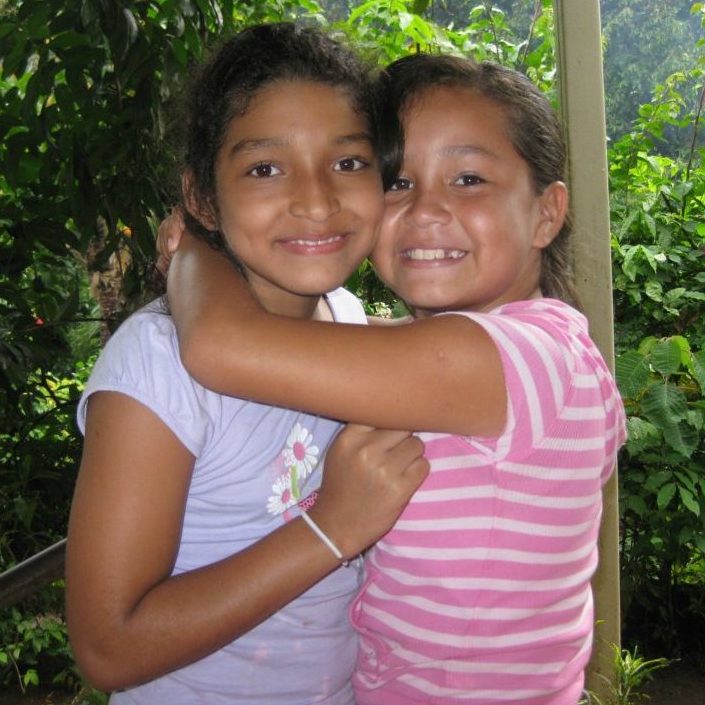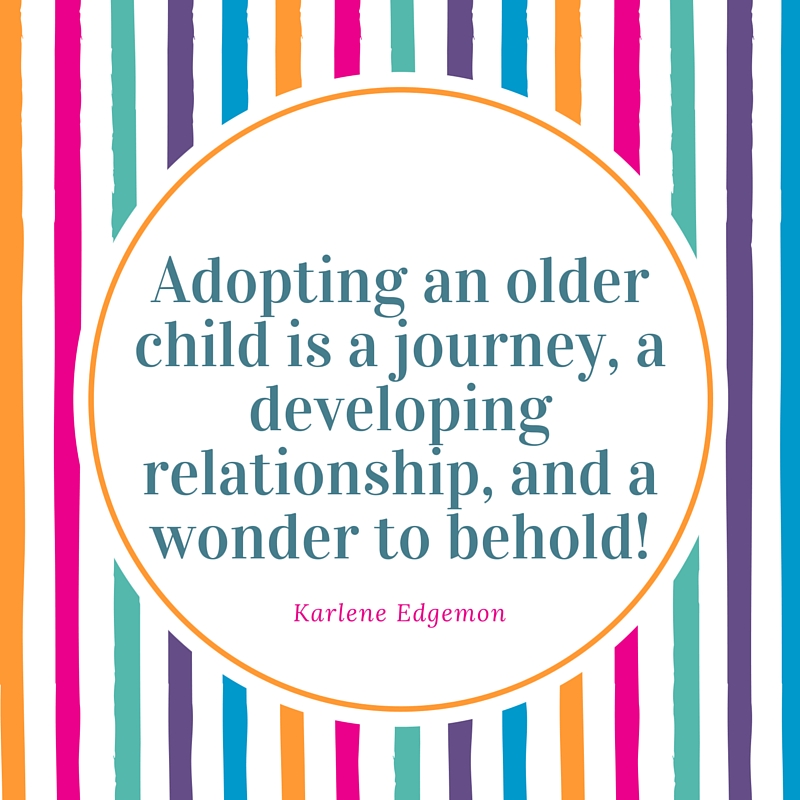Every adoption has both its challenges and rewards, and this is especially true when adopting an older child. Parents who choose to adopt an older child should have certain characteristics. While the desire to adopt and become a parent is, of course, the primary characteristic needed, there are some traits that seem to stand out in parents who have had successful older child adoptions. These are: patience, persistence, willingness to advocate for your child in many areas of life, consistency in your actions, unconditional love, understanding, reassurance, use of open and clear communication, flexibility and willingness to adjust, commitment to the adoption journey itself, a sense of fairness, a good sense of humor, determination, an active lifestyle or one that is conducive to the child’s age and needs, openness to learning new skills and exploring alternatives, willingness to accept and actively seek out parenting assistance and supportive services when needed, willingness to open your heart and your home to change, willingness and commitment to taking the time to really listen to your child, knowing how to have fun and become an active part of the child’s world, being or becoming technologically adept (smart phones, computers, social media, etc.), being able to recognize that the child’s behaviors are not personally directed toward you, and recognizing that the child’s past experiences and/or current fears greatly influence who they are today.
 Older children who are adopted may initially seem aloof, assured, disconnected, “street smart,” or unwilling to comply with their parents’ directives. Often, these are simply defense mechanisms used to help protect them from more disappointment and rejection. The child thinks that if he or she gives the outward appearance that they “don’t care,” it won’t hurt them as much when they are sent away again. An older child has usually experienced a great deal of trauma in one form or another. This trauma undoubtedly affects and skews their understanding of the world. They have often had to fend for themselves or advocate aggressively to get what they needed because they were alone, with no one else to truly advocate for or support them. They are often used to parenting themselves, making decisions and controlling their own lives and sometimes those of their younger siblings as well. So, at times, older children can cause an adoptive parent to feel like maybe they should have not adopted the child. The reality is that the child really does want a home, a family, and a permanent spot to call his own, but he does not have the social skills or ability to effectively communicate this to his parents. This is where the adoptive parent really gets the chance to parent, love, support, and nurture their adoptive child and, in turn, begins to build that all-important bond of attachment with them.
Older children who are adopted may initially seem aloof, assured, disconnected, “street smart,” or unwilling to comply with their parents’ directives. Often, these are simply defense mechanisms used to help protect them from more disappointment and rejection. The child thinks that if he or she gives the outward appearance that they “don’t care,” it won’t hurt them as much when they are sent away again. An older child has usually experienced a great deal of trauma in one form or another. This trauma undoubtedly affects and skews their understanding of the world. They have often had to fend for themselves or advocate aggressively to get what they needed because they were alone, with no one else to truly advocate for or support them. They are often used to parenting themselves, making decisions and controlling their own lives and sometimes those of their younger siblings as well. So, at times, older children can cause an adoptive parent to feel like maybe they should have not adopted the child. The reality is that the child really does want a home, a family, and a permanent spot to call his own, but he does not have the social skills or ability to effectively communicate this to his parents. This is where the adoptive parent really gets the chance to parent, love, support, and nurture their adoptive child and, in turn, begins to build that all-important bond of attachment with them.
When adopting an older child, parents can take advantage of a number of different resources. There are excellent books related to older child adoption for both the parent and the child. There are support groups, blog sites, articles, online webinars and training, tutors/homework assistance, post adoption services, and therapists specially trained in adoption issues. Your adoption agency should be able to share some of these resources with you. Additionally, your child’s school will have tutoring information, special education services, ESL classes, or adaptive technologies available. If your child has more extensive mental health needs, your local mental health center or Department of Child and Family Services will be able to direct you to resources in your area.
A parent needs to be willing to make the effort to educate themselves, prepare their support system, examine the school system in their area, attend and participate in family therapy, gather information on agencies and organizations that can help them with parenting and activities for the older child, find and connect with mentors who are of the same race and culture as the child, and be flexible with their schedule and their lifestyle so an older child can enter it and truly become a part of it. More importantly, the parent needs to come into this relationship with hope, love, awe, appreciation, anticipation, excitement, and enjoyment. Adopting an older child is a journey, a developing relationship, and a wonder to behold! It is the opportunity to REALLY positively change a child’s life forever, and in doing so, change the parents’ life as well.
For more information on adopting an older child internationally, please contact MLJ Adoptions.

